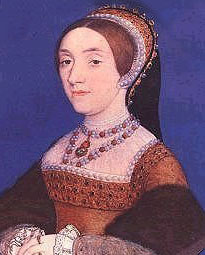 On this day in history, 21st January 1542, just over two and a half months after Queen Catherine Howard’s colourful past had come to light, a bill of attainder against the queen and one of her ladies, Jane Boleyn, Lady Rochford, widow of George Boleyn, was introduced into the House of Lords.
On this day in history, 21st January 1542, just over two and a half months after Queen Catherine Howard’s colourful past had come to light, a bill of attainder against the queen and one of her ladies, Jane Boleyn, Lady Rochford, widow of George Boleyn, was introduced into the House of Lords.
According to this bill, the two women were guilty of treason and could be punished without there being any need for a trial.
Read more…